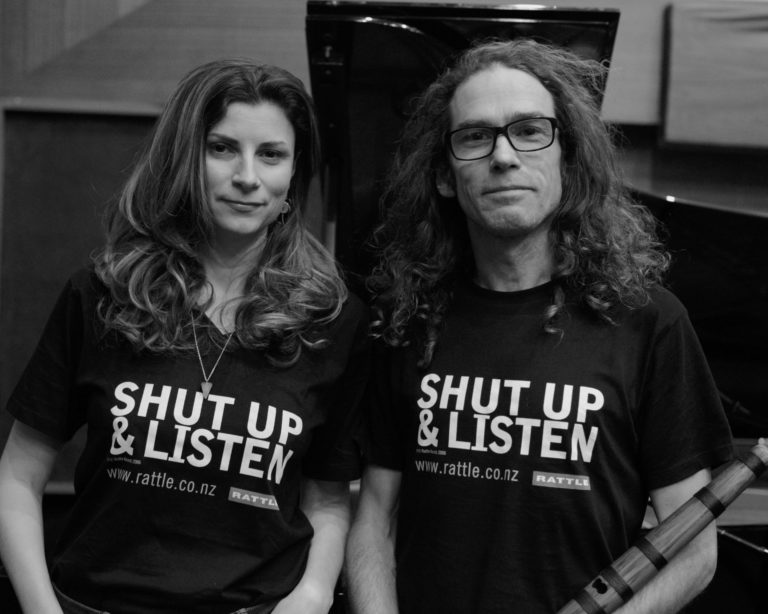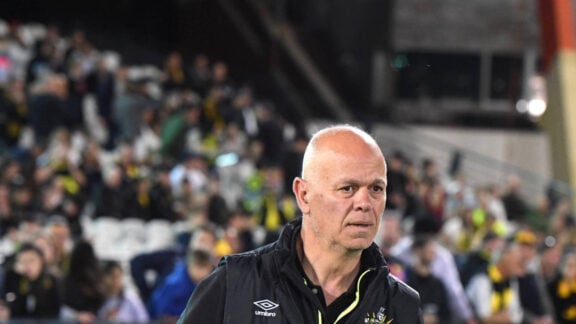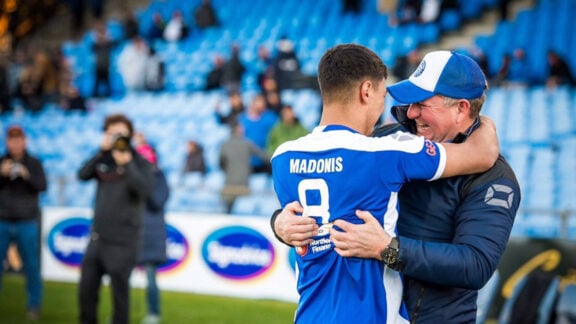Taonga püoro means ‘singing treasures’. The term describes something more than just a set of musical instruments – the flutes, gourds, wood and shell trumpets and bull roarers that Maori people make out of things found in nature. It describes something more than a musical genre; it is an approach to music and to musicianship, it is the ethos of turning yourself into a vessel, becoming the intermediary through which music passes and reaches people, coming from a realm beyond the musicians’ grasp.
Tania Giannouli had a first-hand experience of that. An acclaimed composer and pianist, whose work is released through New Zealand-based Rattle Records, she is one of the most notable young contemporary music artists to emerge from Greece in at least a decade, her cinematic soundscapes gaining recognition around the world.
Having one foot firmly set into structured, ‘classical’ composition and the other in free improvisation, she is always eager to delve into new ventures and step into uncharted territory. But when she invited her Rattle Records stablemate Rob Thorne into the studio, she realised she was not prepared.
“I knew of his work, but I didn’t know him,” she says, explaining that she was impressed by the way Thorne uses the traditional Maori instrumentation.
So when she found out that he was visiting Athens to participate in the Borderline Festival, an annual multi-platform event organised by the Onassis Cultural Centre, she saw an opportunity arise.
“I emailed him, introduced myself and started a conversation, which led to us booking a studio in Athens for a couple of days. If we manage to do something good, we can keep it, if not, it would not be a big deal.”
Still, when the pair first set foot in the studio, they had only met the previous afternoon.
“On the first day, he only got to demonstrate the instruments and tried to play together, but it was strange, because I had some ideas to try which didn’t work out, it was frustrating,” she remembers.
Tania soon realised that she had to let go and go with the flow.
“It’s the nature of these instruments,” she admits. “You can’t make them do what you want. But it is also the way Rob thinks about music. For him, it’s the Maori voice coming through the instruments. Before he sets out to play, he makes an invocation to the spirits, so that they speak through the instruments.”
So, the next day, they both tried a different approach. They came into the room, leaving all their ideas and preconceptions outside.
“It was completely free, we just sat in and started improvising,” she says.
A few hours later, when the music stopped, Giannouli and Thorne looked at each other and spent some time in silence, trying to fathom what exactly had happened. They had embarked on a journey of improvisation, that got them both in a kind of a trance.
“The best word to describe it is ‘journey’, I can’t think of another,” she says. “It is one of the most powerful and important things I’ve ever done in music in general, but Rob also said that he had never played like that before. We had obviously influenced each other’s playing and this is something beautiful and magical when it happens.”
But how does it happen?
“You just have to make the decision and accept that you’re going to play without a safety net, without a plan,” she says.
“You get into the music and lose touch with reality. The most interesting thing to me was to experience how easy it was for two musicians playing one instrument each at the time, can create such a rich and complicated world. It was shocking to me, when I listened to it; all this world was created by just a piano and a shell?”

The recorded material was sent to Steve Garden, head of Rattle, who shaped it into an album, Rewa adding electronics.
“This is a very personal project for all three of us,” says Giannouli. “Each of us has a different reason, but for me, playing so impulsively, was a chance to let out things that are hidden deep into my subconscious.”
She points to the final track, Te Tangi A Mutu: “It starts with a wild, chaotic noise and ends up being a very sad song. This was me, letting out very personal things,” she says. Her note on the album’s booklet says it all:
“Leaving the old Self behind. Seeing the world through
a different prism. A new life, fuelled by yesterday’s pain
and tangles. Acceptance and release. Setting off”.
In essence, what Rewa demonstrates is two worldviews coming together. Writing about it, music reviewer Phontas Troussas describes the album as one-of-a-kind, impossible to fit into genres.
“Rewa has a distinct style relating to the transcendence of ancient sounds to now,” he wrote, describing the collaboration between Giannouli and Thorne as the “fusion of centuries”, carrying “vibes from the natural landscape” of New Zealand.
The track list features some titles in English, some in Maori, some in Greek. In the end, how Greek is this project? “I don’t know,” Giannouli admits. “I guess it’s as Greek as I am.”
‘Rewa’ is available to purchase in CD form or as a digital download from Rattle Records, rattle.co.nz









